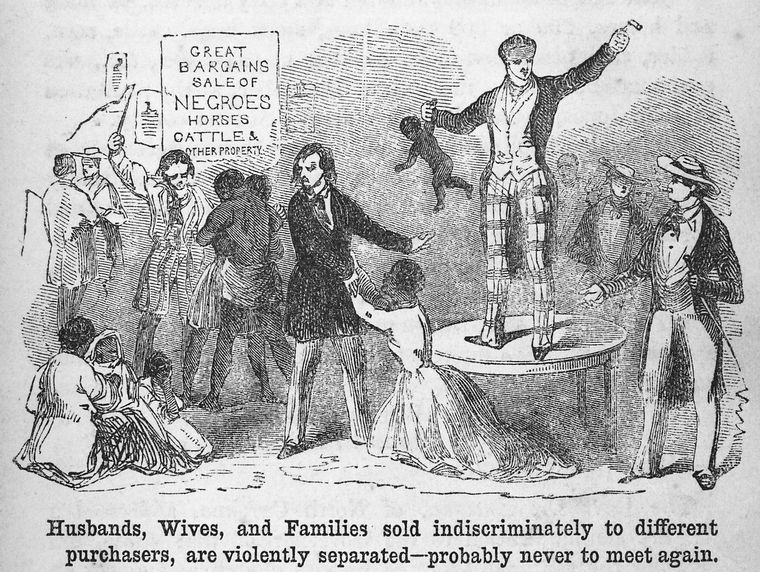Slavery in Your Past Means Wealth Today

There’s a new study out looking at the wealth of members of Congress whose ancestors owned slaves compared with members of Congress whose ancestors did not own slaves. Will it shock you that those with slaver ancestors are a lot wealthier 179 years after the institution’s abolition? It should not.
We found that members of the United States Congress whose ancestors had 16 or more slaves have a current net worth that is five-fold larger than legislators whose ancestors were not slave owners. This sizeable difference in net worth persisted even after adjustment for potential confounders such as age, sex, race, ethnicity, and education and in ancillary analyses limited to White legislators. To our knowledge, this study is the first to examine individual level associations between slaveholder ancestry and net worth in the present day. Other strengths of the study include availability of data on specific assets and liabilities, rigorous review of historical documents to identify slaveholder ancestry, and inclusion of data on the number of slaves owned in the past.
Our findings on the impact of slaveholder ancestry on wealth are consistent with previous research on the topic, much of which was done at the county level. For example, studies have found counties with higher rates of slavery in 1860 are associated with higher contemporary levels of racial inequality in education, as well as better socioeconomic outcomes (e.g. income, home ownership, food security) among Whites [3, 4]. Other work finds counties with wealthier slaveowners before emancipation were associated with lower economic development that persisted through 1950. This association is attributed, in part, to the enduring political influence wielded by slaveowners and their reluctance to support widespread educational initiatives [15]. Recent advances in linking digitized census records have allowed analysis of data at the individual level. For instance, a study examined White Southern households with large numbers of slaves in 1860 and a comparison group of equally wealthy households that had few slaves and instead owned more land, livestock, buildings, and other assets. By 1900, the sons of larger slaveholders had almost recovered in occupation-based wealth, and by 1940, grandsons of larger slaveholders completely recovered in both annual earnings and educational attainment. Due to data limitations, the researchers were unable to examine grandsons’ wealth in 1940 [16]. In addition, the association we observed between legislators’ net worth and increased age, White race, and more education follows the pattern seen across the American population at large [17, 18].
Wealth and privilege may be transmitted across multiple generations through a variety of mechanisms. Inheritance laws and related policies such as low estate taxes and mechanisms to create trusts allow for wealth perpetuation. Access to social networks of other wealthy individuals, opportunities to attend prestigious educational institutions, and entry into prominent occupations provide additional benefits [19]. Wealthy families are also able to hire professionals to manage their estates, trusts, and other investments. Moreover, wealthy individuals use their political influence and philanthropic giving to exert influence on regulations and tax policies and on public perceptions [19]. The study of White Southern households mentioned above found that social connections and marriages to other elite families explained larger slaveholding families’ rapid recovery, not their abilities or entrepreneurial skills [16]. In addition, the name recognition that results from being part of an established family can be helpful when competing in political elections [20]. Our results, over 150 years after emancipation, provide further evidence for the durability of wealth across generations. It is worth emphasizing that wealth from any source (whether slavery is involved or not) generally creates intergenerational benefits. Wealthy individuals accrue political power which they use to further enhance their wealth in a positive feedback loop [21].
But hey, John Roberts said race doesn’t matter anymore, so what is this? Critical Race Theory?
